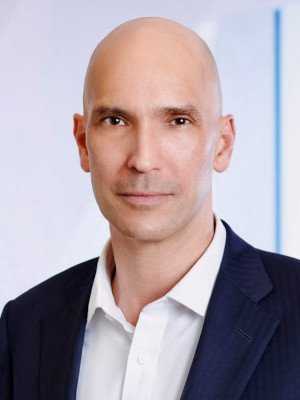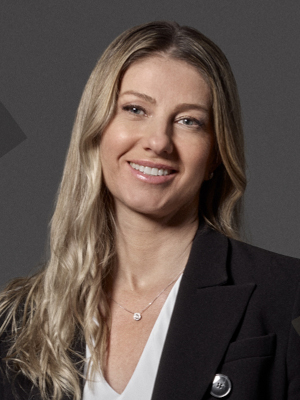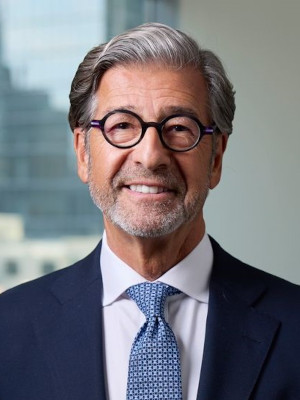Whether to invest in private companies directly or through public equities is an age-old question for family offices. With today’s robust markets, global trade uncertainties and other factors—for example, how best to invest in the promise of artificial intelligence—the answer from experts is very much both.
“Our message now is, ‘Hold the course,’” says Alex Da Costa, principal and chief investment strategist at Prime Quadrant, a multi-family office based in Toronto that has a long history of offering alternative investments to its clients.

Concerns back in April that “the world was about to blow up,” with downturns from U.S. President Donald Trump’s tariff policies, have eased, he says. “Markets rebounded rapidly—one of the fastest rebounds we’ve ever seen. Growth is okay, inflation is okay, employment looks okay, maybe it’s weakening a bit, but the disaster story hasn’t played out, yet anyway.”
The lesson is not to overreact to short-term situations, Da Costa adds. “Markets are always climbing a wall of worry, and there’s always some risk that investors are anxious about.”
While many Canadians feel threatened by what Trump is doing, U.S. economic measures like the so-called Big Beautiful Bill “are actually pretty stimulative,” he adds.
A recent Goldman Sachs family office report, which includes the perspectives of 245 decision-makers around the world, found that family offices have increased their investments in public markets and pulled back on alts. It also found that ultra-wealthy families consider the stock market the easiest way to invest in AI, with 86 per cent of respondents invested in AI in some capacity.
Meanwhile, a new survey of 346 global family offices from Citi Wealth showed a strong commitment to private equity, with 70 per cent of respondents saying they are engaged with direct investments and four out of 10 saying they have increased or significantly increased their private-market activity in the past year. In response to volatility triggered by the Trump tariffs, 39 per cent of the family offices polled by Citi say they’re taking a more active approach to their investment portfolios.
We are getting exposure [to AI] through public equities, but we also are getting it through alternatives.
Alex Da Costa, Prime Quadrant
Anik Lanthier, chief investment officer of Richter Family Office in Montreal, says the firm has had good results in privates, although there have recently been some extensions to private-equity funds that could delay the ability of clients to exit these strategies. This is because valuations were high and rates were low at that time, she says. “I think the 2021 vintages will struggle, and maybe we’ll see some deals that will not go as planned.”
Meanwhile, “publics have done exceptionally well,” and investors have forgotten the drawdowns of April, she adds. “People have short-term memories.”
Richter’s clients are invested about 45 per cent in privates, she says, including real estate, private equity and private credit. “They always wonder, ‘If the stock market is making 25 per cent, why do I need to do this?’”

Richter reminds its investors that there are far more private companies than public, Lanthier says, “so there’s a huge part of the economy that you cannot get access to if you’re only in public, and it brings a lot of diversification and value creation.”
Neil Nisker, co-founder, executive chairman and chief investment officer of Our Family Office Inc., a Toronto-based shared family office, says 65 per cent of his client portfolios are made up of non-traditional investments, including real estate, private equity, venture capital, secured credit, loans, mortgages and absolute-return strategies.
“We’re in the stay-rich business, not the get-rich business,” Nisker says, which he believes should be a common philosophy among family offices. “The focus should be on risk; these people don’t want to see volatility and drawdowns in their portfolios.””
Nisker is nervous about the state of the stock market, especially given the records being set in the percentage of Americans who own equities, as well as the level of margin debt, which is at an all-time high. Historically, when the market starts to go down, “it becomes somewhat of a death spiral in that people get margin calls and they have to sell. That pushes the market down more, and then they have to sell more,” he explains.
Company valuations are also a concern for Nisker, who worries about the thinness of the market. His firm invests in equities through exchange-traded funds across a range of geographies with healthy returns, says Nisker, who feels that family offices should reconsider active management.
“If a manager cannot beat the market net of fees over a 10-year period, then you should be the market for no fees,” he says.
Lanthier agrees that active management “is not working,” although she warns that passive investing will not always offer the sizable returns of late. “Everyone wants passive, and everyone thinks that we can extrapolate 15 or 20 per cent returns all the time. I don’t think it works that way, but that’s been the short-term experience.”

Da Costa says “it’s hard for active managers to add value with any degree of consistency over the long term, particularly in markets which are very efficient.” A nuanced view is best, he says, using active management where there’s a potential for it to add value. His firm has been moving into custom indexing strategies that give clients low-cost exposure to a variety of equity markets “and deliver modest but fairly consistent alpha.”
While some think valuations are high, Da Costa adds that “outside of some areas of tech, they’re not in what we would call ‘crazy bubble territory.’” He sees dispersion between sectors like health care and defence that are happening in response to policy, “which to us isn’t screaming ‘broad-based bubble.’”
Lanthier says that “some names are extremely highly valued. It doesn’t mean that it will necessarily go down, but it means that it needs to continue to do exceptionally well in order to deserve those valuations.”
She notes pockets of the market where valuations are not that high, for instance in small-cap stocks and some regions. “But it is a concern if things are priced too close to perfection in some areas.”
Public equities can be a good way to participate in the AI craze, Da Costa says, but “rather than going out and saying, ‘Okay, we need to do things that are specifically AI,’” it can mean investing in companies that are introducing and implementing AI in an innovative way.
“It’s permeating everything in our economy,” he says. “We are getting exposure through public equities, but we also are getting it through alternatives.”
Lanthier says AI is “extremely transformative” and an important theme for investors. “People are trying first to assess: ‘How can I get exposure? What will it mean? Which stock will have collateral impact—positively or negatively—from AI?’”
It’s important to play AI “from many different lenses, and it cannot only be from the public stock market. It needs to come from the privates side, it needs to come from the real estate side, from the infrastructure side. You have to play it very widely.”
Diversification is key right now, she says. “People are not diversified enough.” This is not just in selecting stocks, “it’s across asset classes, across geographies, across where you are in the capital structure,” she explains.
“This is the key in order to navigate highly uncertain environments.”
Mary Gooderham is a writer, editor and communication advisor based in Ottawa. She leads Cohen Gooderham Communications and has worked as a journalist for more than 40 years at The Globe and Mail, as a recording officer at the International Monetary Fund and as a custom content creator for online and print media. She’s been a contributing writer at Canadian Family Offices for four years, focusing on investment strategy, trusts, philanthropy, women in finance and estate planning.
The Canadian Family Offices newsletter comes out on Sundays and Wednesdays. If you are interested in stories about Canadian enterprising families, family offices and the professionals who work with them, but like your content aggregated, you can sign up for our free newsletter here.
Please visit here to see information about our standards of journalistic excellence.




